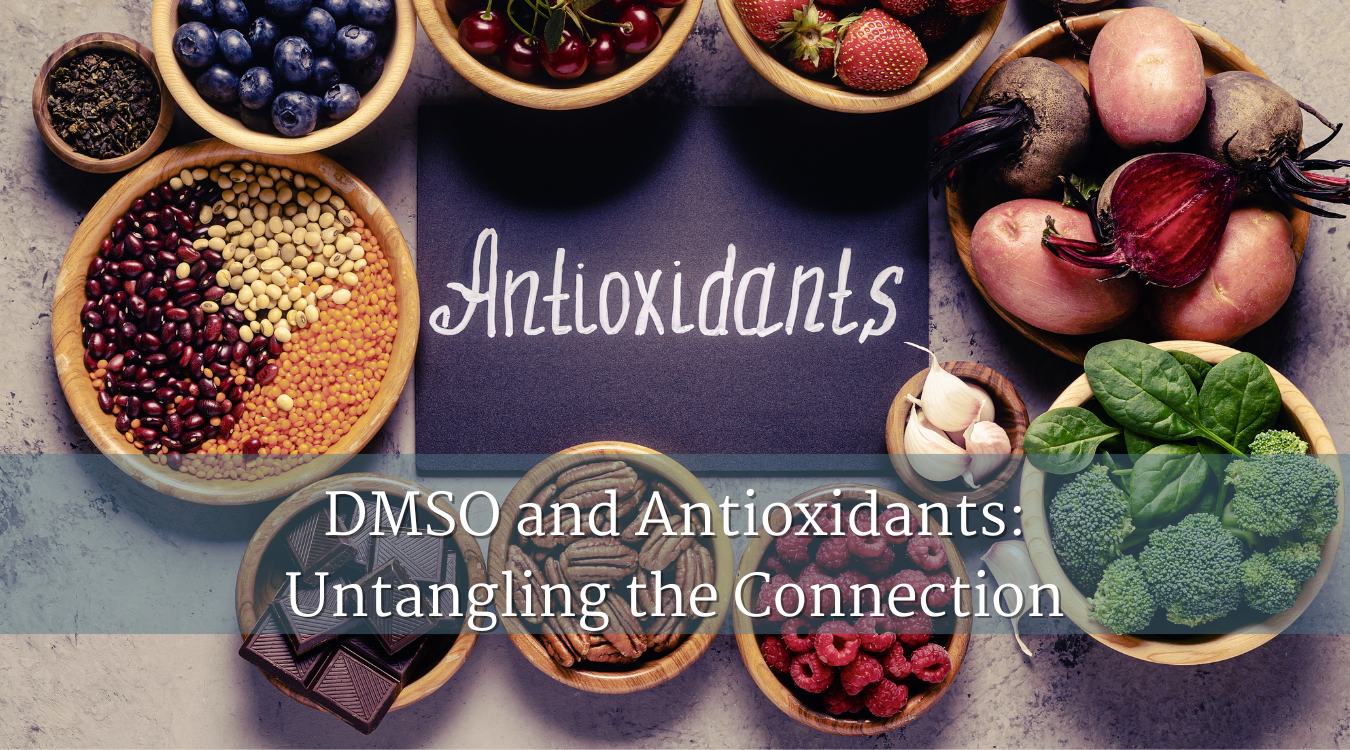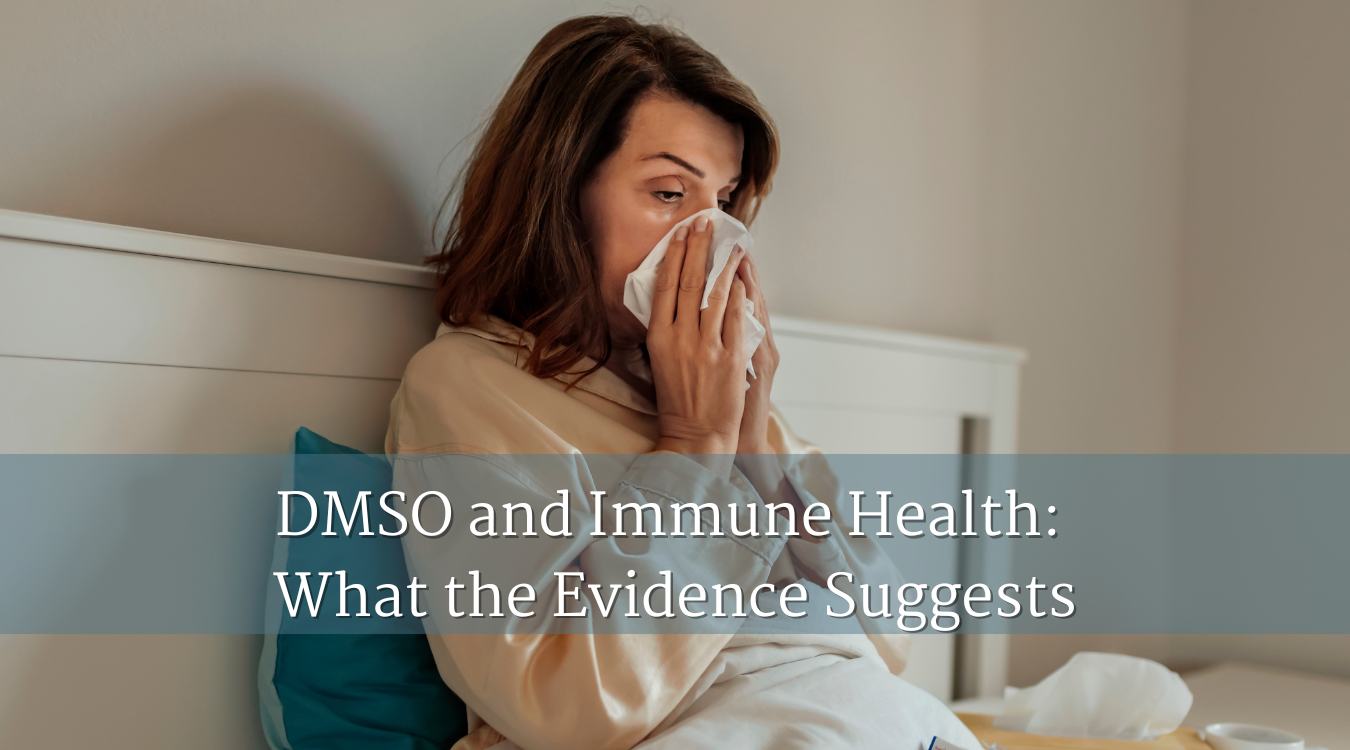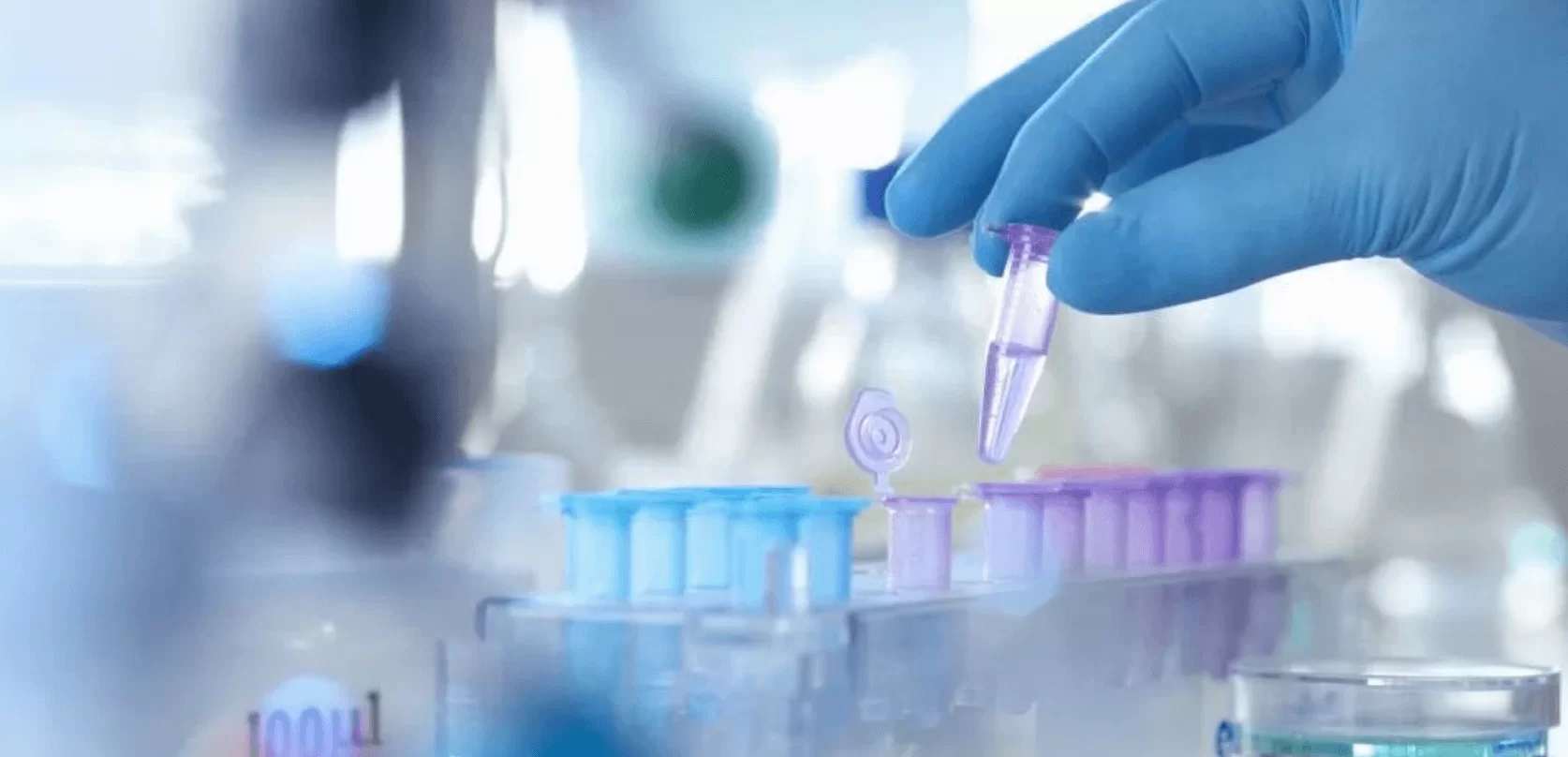
The Antioxidant Puzzle: Where DMSO Fits In
Antioxidants are compounds that protect the body from oxidative stress — the cellular damage caused by unstable molecules called free radicals. Oxidative stress has been linked with aging, inflammation, and chronic disease, so naturally, substances with antioxidant properties attract attention.
DMSO (dimethyl sulfoxide) is one of them. Originally used as an industrial solvent, researchers noticed decades ago that DMSO could neutralize free radicals. This discovery opened the door to investigations into whether it might act as an antioxidant in biological systems.
Research Roundup: What Studies Show
-
Free Radical Scavenging
Laboratory tests confirm that DMSO can bind to and neutralize free radicals. This is one of its most consistent and well-documented biological properties. -
Protective Effects in Cells
In some experiments, DMSO has been shown to reduce oxidative damage in tissues exposed to toxins or stress. This has made it useful as a laboratory tool to protect cells during storage or experimentation. -
Anti-Inflammatory Overlap
Because oxidative stress and inflammation are closely linked, DMSO’s antioxidant effects may also explain part of its anti-inflammatory actions observed in other studies. -
Not the Whole Story
While the antioxidant activity of DMSO is clear in lab studies, translating this into meaningful health outcomes for humans is more complex. Concentration, method of use, and biological environment all play major roles in whether antioxidant effects are beneficial or potentially harmful.
A Biochemist’s Insight
Biochemists emphasize that not all antioxidants behave the same way in the body. Some antioxidants can switch roles and become “pro-oxidants” in certain conditions. DMSO’s powerful reactivity means it can’t simply be classified as a “good antioxidant” without caveats.
In fact, the very strength of its activity is why researchers continue to study it cautiously. While it is valued in the lab, it hasn’t translated into approved antioxidant therapies in medicine.
The Takeaway
DMSO is undeniably an antioxidant at the molecular level, but whether that translates into practical or safe health applications remains unproven. The research shows promise, but without robust clinical studies, it remains an intriguing property rather than a clear therapeutic path.
For now, DMSO’s antioxidant role is best viewed as a scientific curiosity — one that might inform future discoveries, but not a replacement for established antioxidant-rich foods and compounds in daily life.




 DMSO and Immune Health: What the Evidence Suggests
DMSO and Immune Health: What the Evidence Suggests
 DMSO and Skin Care: Dermatologist Insights on Benefits and Concerns
DMSO and Skin Care: Dermatologist Insights on Benefits and Concerns














.webp)